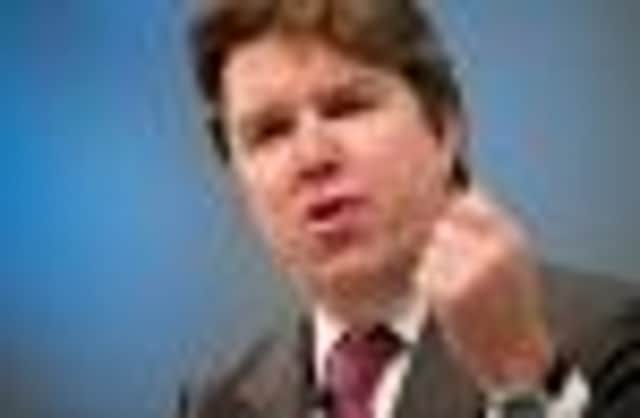Paul Tucker raises prospect of negative interest


Appearing before the Treasury select committee yesterday, Tucker also said he remained open to the prospect of more quantitative easing (QE), despite earlier this month voting against governor Sir Mervyn King, who unsuccessfully called for the Bank to ramp up its bond-buying programme by £25 billion.
Base rates have been held steady since March 2009 in an attempt to stimulate economic growth, but Tucker told MPs that he has considered the “extraordinary” idea of charging lenders to hold their cash piles with the central bank.
Advertisement
Hide AdAdvertisement
Hide AdThe Bank joined forces with the Treasury last year to create the £80bn Funding for Lending scheme, aimed at easing the flow of credit to the wider economy by lowering the costs of capital for banks, but the initiative has so far failed to make a big impact on lending to companies.
Sweden’s Riksbank became the first central bank to venture into negative territory in 2009, charging 0.25 per cent on excess reserves, while Denmark made a similar move last year.
Although such a step is seen as highly unlikely in the UK, the thinking is that banks would rather lend their money to businesses and households than pay to keep it in the Bank of England’s vaults.
While that would be good news for borrowers, it would almost certainly lead to even lower interest rates for hard-pressed savers.
Tucker said: “This would be an extraordinary thing to do and it needs to be thought through carefully.”
He added: “I hope we will think about whether there are constraints to setting negative interest rates.”
However, with inflation running at 2.7 per cent, consumers are already effectively faced with “negative interest”, as the price of goods and services is rising more quickly than the interest on many savings accounts.
Minutes of the Bank of England’s latest meeting of its monetary policy committee (MPC) showed members had discussed a reduction in the base rate, although they voted unanimously to keep it at its record low of 0.5 per cent.
Advertisement
Hide AdAdvertisement
Hide AdKing – who will be replaced as governor by Canadian central banker Mark Carney in July – was joined by Paul Fisher and arch-dove David Miles in pressing for an increase in its QE programme to £400bn, but the other six MPC members voted to keep the stock of asset purchases at £375bn.
The 6-3 split was the sharpest divergence in views since June last year, when a difference of opinion was followed the subsequent month by a £50bn boost to QE.
Tucker told MPs yesterday: “I remain open to doing more QE, depending on the outlook for demand and inflation.”
His comments were echoed by fellow MPC member Fisher, who told an audience at the University of Bristol that the committee will “keep all its options open” when it comes to further bond buying.
Fisher said: “The majority of the MPC took a view in February not to make any more purchases. I accept that there was a good case to be made for that position, even if on balance I took a different view.
“But I think we need to keep under review whether there is merit in undertaking more asset purchases under a slightly different dynamic approach.”